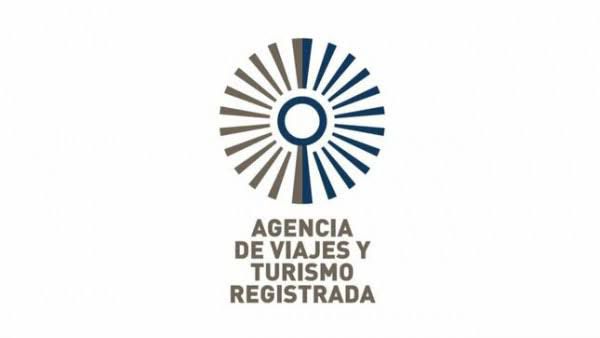
CODE OF CONDUCT AGAINST SEXUAL EXPLOITATION OF GIRLS, BOYS AND ADOLESCENTS (ESNNA) IN THE FIELD OF TOURISM, FOR TOURIST SERVICE PROVIDERS
PREAMBLE
The Ministry of Foreign Trade and Tourism (MINCETUR) is the governing body of tourism activity, in charge of promoting, guiding and regulating it, in order to promote its sustainable development.
Law No. 29408, General Tourism Law establishes in its article 3, the principles of tourism activity that must be applied by public administration entities and tourism service providers.
In accordance with the provisions of article 44 of the aforementioned Law, the MINCETUR has the authority to coordinate, formulate and propose the issuance of regulations that are required to prevent and combat the Commercial Sexual Exploitation of Boys, Girls and Adolescents (ESNNA) in the field. of tourism. Likewise, it develops and executes, in coordination with the Ministry of Women and Vulnerable Populations and the sectors involved, national programs and projects linked to this problem.
The same article indicates that regional and local governments have the obligation to adopt measures to prevent SEC in the field of tourism, in their respective territorial constituencies.
In this framework, article 41 of the Regulations of the General Tourism Law, approved by Supreme Decree No. 003-2010-MINCETUR, establishes that, among the actions that regional governments can adopt for the prevention of SEC, there is the signing of commitments or codes of conduct by tourism service providers and other actors linked to tourism.
In this regard, it is specified that the provision of tourist services constitutes one of the main components for the development of tourist products and destinations. In response to this, the General Tourism Law establishes, in its article 43, the responsibility of service providers to communicate, disseminate and publish the existence of regulations on the prevention and punishment of SEC in the field of tourism.
In this sense, it is necessary to establish a set of principles, behaviors and practices that allow preventing and combating SEC in the field of tourism, in order to contribute to the sustainable tourism development of Peru.
Therefore, the principles developed in the Code of Conduct against SEC in the field of tourism are established for tourism service providers, referring particularly to the legal instruments listed below:
The Code of Conduct aims to establish the bases for responsible behavior, as well as reaffirm the principles, duties and general standards that tourism service providers and their workers must know and comply with, in order to prevent SEC in the performance of their activities. .
In this context, it seeks to promote the commitment of the private sector in the fight against the crime of sexual exploitation of minors, within the framework of the National Policy of Mandatory Compliance for the Protection of Children and Adolescents.
This Code is applicable to tourism service providers included in Annex No. 1 of “Law No. 29408 — General Tourism Law.”
III. BEGINNING
3.1 The best interest of girls, boys and adolescents
Girls, boys and adolescents are full subjects of rights that must be respected by the family, the State and society. This principle obliges the State and society to recognize and guarantee the human rights of children and adolescents and gives preeminence to the best interests of children and/or adolescents over other interests and considerations.
3.2 Girls, boys and adolescents as subjects of rights
This principle highlights the condition of girls, boys and adolescents as complete and respected human beings, possessors of potential to develop and holders of civil, political, economic, social and cultural rights that must be recognized for the mere fact of their existence. In that sense, girls, boys and adolescents are not considered incapable; in accordance with the provisions of the National Action Plan for Children and Adolescents.
3.3 Sustainable development of tourism
Tourism activity must improve the quality of life of local populations and strengthen their social, cultural and economic development, under equal conditions.
Therefore, for tourism to be sustainable, it needs to respect the environment, our culture and human rights, especially those of girls, boys and adolescents, which is why we encourage the enjoyment of an exchange of positive experiences between tourists and visitors. based on respect and equity.
The tourist service provider is obliged to comply with the duties established in Law 29408 - General Tourism Law and its Regulations approved by Supreme Decree No. 003-2010-MINCETUR; as well as those duties established in Law No. 30802 - Law that establishes conditions for the entry of girls, boys and adolescents to lodging establishments in order to guarantee their protection and integrity, paying special attention to:
5.1 DISSEMINATION
The tourist service provider must disseminate the laws, regulations, internal provisions, manuals and other information that it considers relevant regarding the prevention of SEC among its workers, in accordance with article 43" of the Regulations of the General Tourism Law approved by Supreme Decree. N°003-2010-MINCETUR will also inform its staff and suppliers or contractors about the duty to comply with the policies contained in this document, in order to prevent SEC in the field of tourism.
5.2 SUBSCRIPTION
The Regional Governments, through the corresponding DIRCETUR or GERCETUR, will manage the subscription of the Code of Conduct by all tourism service providers, which will be accredited with the signing of the Affidavit of Mandatory Subscription, approved by the MINCETUR.
5.3 MONITORING
Monitoring compliance with the duties of this Code will be carried out at the regional level, by the GERCETUR or DIRCETUR; and in the area of Metropolitan Lima by the General Directorate of Tourism Development Policies of MINCETUR.
Failure to comply with the provisions of this Code will be sanctioned administratively, as appropriate, in accordance with current legal regulations.
The administrative sanctions that may be applied do not exempt the tourist service provider from the criminal liability that may arise, in accordance with the provisions of the Peruvian Penal Code.
Tenemos excelentes ofertas para armar tu travesía
